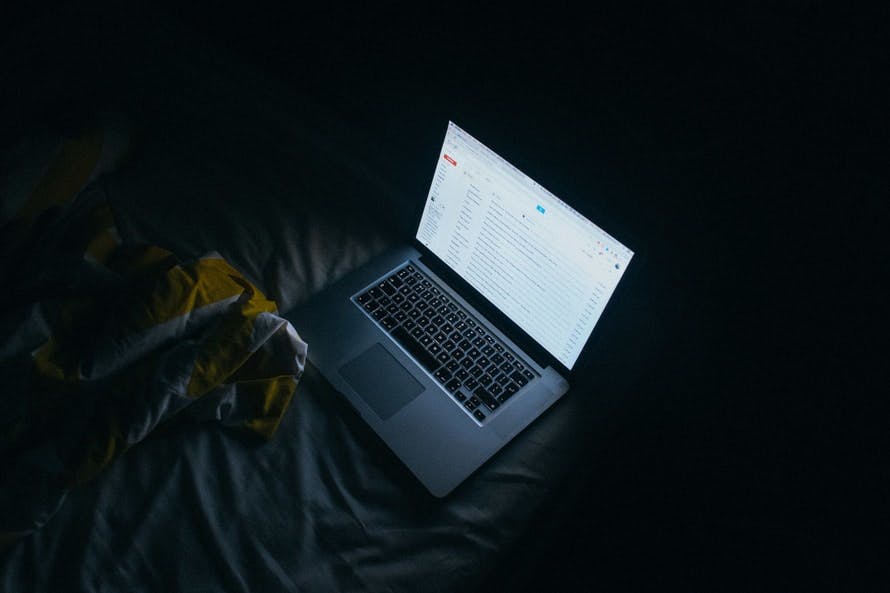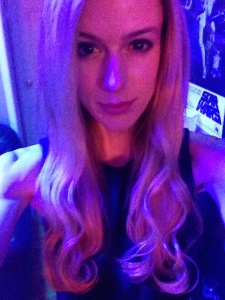
I used to hear stuff about light and color influencing sleep (“Don’t look at TVs before bed!”) and thought yeah…doubt it. After all, why would light exposure PRIOR to sleep affect actual asleep? If the lights were off when I finally got to bed, wouldn’t that suffice?
Unfortunately….no.
Ya see, light exposure is the key factor influencing one’s circadian rhythm. Your biological clock naturally “wants” to align with the external world. As such, light tells the brain to be awake and alert, while waning light and darkness incites sleepiness. When you wake up in the morning, the light pumps up your cortisol, heart rate, and blood pressure. In fact, there is even an increased risk of heart attack in the morning, due to all this excitement from the light!
But back to the sleepy part of the equation. Your sleep cycle functions on more of a long term, rather than short term memory basis. While light exposure can quite quickly get your “awake systems” going, you can’t just turn off the lights, and expect your circadian rhythm to be like “OK NIGHT!” Nope…your circadian rhythm remembers the light. Good in a metaphorical motivational sense, bad in a literal sleep sense.
The corresponding problems with our sleep cycles in the modern luminous world are twofold:
1. We get LESS exposure to light during the day by remaining indoors, encouraging daytime lethargy.
2. We get MORE exposure to light at night with florescent lights and computer screens, making it more difficult to fall asleep.
THE SLEEP SOLUTION?
In the ideal world, you’d fix your sleep cycle by waking up at sunrise and going to bed at sunset, while working outside during the day, and turning off all electronics at night. Hah. Since this clearly isn’t going to happen, let’s start by addressing the light exposure at night part. If you can’t bear to turn off that computer screen (like I clearly can’t, since I’m writing this circa midnight), you can at least deal with the ramifications.

I took this selfie because the lighting was AWESOME. Who knew it would also signify the two colors significant to the sleep/wake cycle?
Computers screens are specifically bad for sleep, due to not only their emitence of light, but particularly the spectrum (color) of that light. Light exposure in general raises cortisol levels and encourages a state of awakeness and alertness in the brain, as discussed above. But beyond that, short-wave “blue light” more present naturally in the daytime actively suppresses melatonin secretion, the sleep inducing hormone. In contrast, the longer wave length red light does not have this effect. Since technological devices are rampant in blue light, staring at that computer screen before bed tells your brain it’s not anywhere NEAR time to go to sleep! When you’re on Facebook or checking Instagram or watching a movie at 11pm, your brain is like So glad it’s the afternoon!
The easiest solution to this problem would just be turn off all electronic devices and dim the lights a few hours before bed. But really… who does that? Another option would be to wear rose tinted glasses come night time, but again… who does that? (Although I almost ordered some at some point.) So what’s a tired, wired guy or gal to do?
F.LUX
Enter f.lux. I just recently discovered it, and I really have no idea how I survived without it. It’s an awesome, FREE program (https://justgetflux.com) which adjusts the coloring on your computer screen to err on the red side of the spectrum come night time! Bye bye blue! Simply tell the app when you want to go to bed, and it will slowly transition the coloring of your computer to support your circadian rhtym. Pretty nifty! Since I began using f.lux, my computer feels substantially more calming (or at least not as stimulating). When I look at my computer at night now, I am filled with a reflctive “ahhh….”, rather than a stimulating “ahh!”
I highly recommend downloading and implementing f.lux. It has made a HUGE difference in minimizing computer-induced down-reglation of my personal nightly melatonin secretion. Really. (Hopefully after reading this, I can say that casually like I just did, and you know what I’m talking about.)
More sleep hacks to come!
References
http://www.hindawi.com/journals/ije/2010/829351/
http://www.health.harvard.edu/newsletters/harvard_health_letter/2012/may/blue-light-has-a-dark-side/
http://www.lrc.rpi.edu/programs/lighthealth/projects/nightalertness.asp?id=167
http://www.ncbi.nlm.nih.gov/books/NBK19956/

